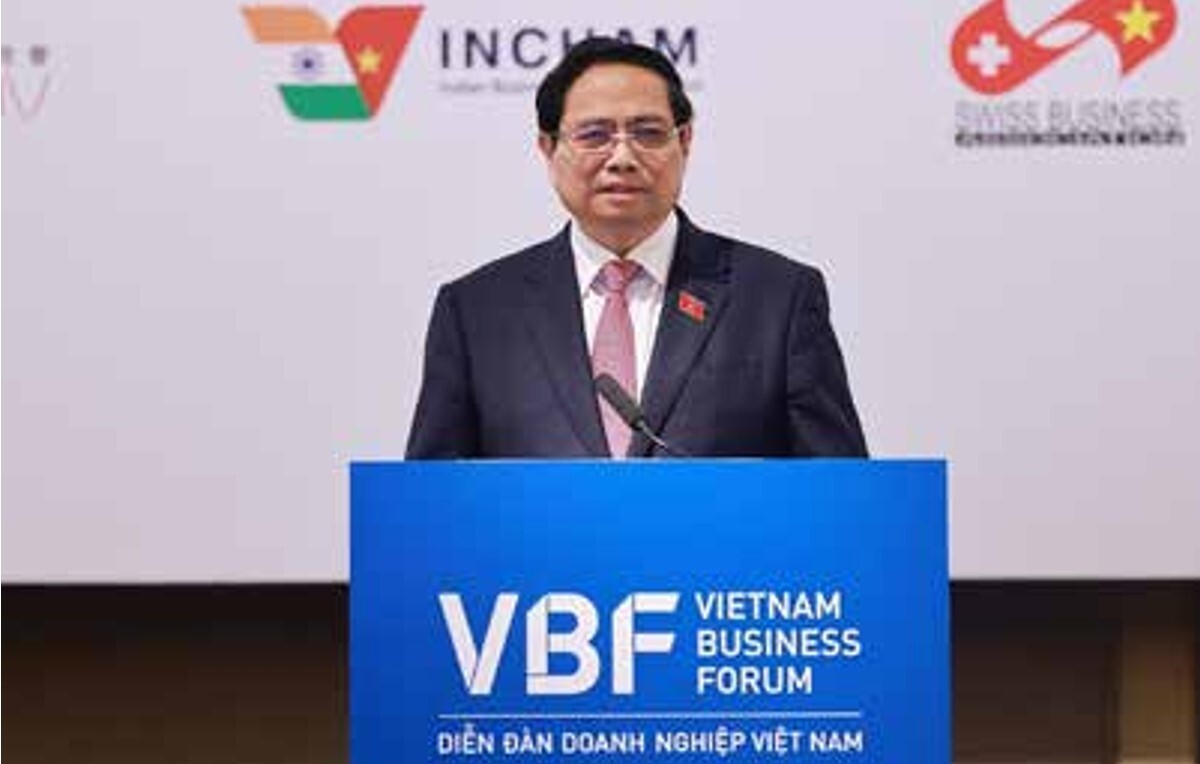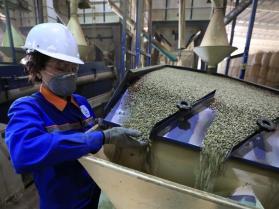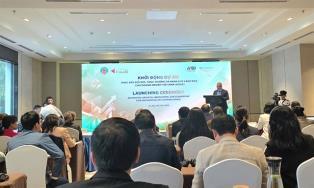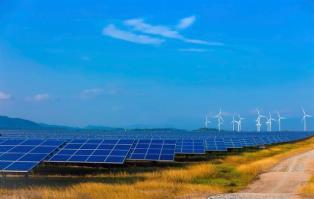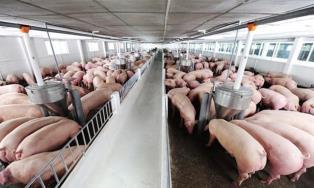The theme of the Vietnam Business Forum this year is 'Businesses Partnering with the Government for a Green Transformation in the Digital Era'.
HÀ NỘI — The Government and the business community have reaffirmed their joint commitment to a green and digital economy at the annual Vietnam Business Forum (VBF) held on November 10 in Hà Nội.
The forum, organised by the Ministry of Finance of Vietnam (MoF) in cooperation with the World Bank, the International Finance Corporation and VBF, convened senior ministers, international financial institutions, business associations and both domestic and foreign investors. This year's theme is 'Businesses Partnering with the Government for a Green Transformation in the Digital Era'.
In his keynote address, Prime Minister Phạm Minh Chính emphasised the evolving global economic landscape, stating that "the world is entering a deep‐seated transformation" marked by geopolitics, trade protectionism, the climate crisis and the wave of digitalisation.
Against this backdrop, Việt Nam was positioning itself as a bright star in Asia, not just for its open economy and stable growth, but increasingly for its institutional reforms, digital transformation and green development agenda.
The PM laid out key tasks, including stabilising the macroeconomy, controlling inflation, ensuring major balances, restructuring the economy, accelerating industrialisation, modernisation and urbanisation, and embedding green and digital transitions as core priorities.
PM Chính also urged enterprises, domestic and foreign alike, to actively invest, transfer technology and lead sustainability practices. Foreign direct investment (FDI) firms in particular were encouraged to take the lead in achieving green objectives while helping Vietnamese firms in the transition.
Firms are expected to adopt business models aligned with environmental, social and governance criteria, reduce emissions, restructure production, embrace circular economy concepts and leverage digital technologies for monitoring and transparency.
Despite this optimism, the Prime Minister acknowledged persistent and pressing obstacles, such as institutional weaknesses, execution capacity, green competitiveness and attracting high-value investment.
To overcome these, the Government repeated its call for dialogue and pledged to respond swiftly to business recommendations, especially in areas such as customs simplification and developing LNG and offshore wind power.
Speaking at the event, Minister of Finance Nguyễn Văn Thắng said that thanks to the determination, efforts and decisive actions of the entire political system, residents and the business community, the Vietnamese economy continued to accomplish great things.
The country emerged as a regional economic bright spot, widely recognised and appreciated by the international community.
As such, the macro-economy was stable and balanced, inflation was controlled and growth reached over 7.8 per cent in the first nine months of this year and 8 per cent in the third quarter, placing Việt Nam among the countries with the highest growth globally.
"Total registered FDI capital reached over US$31.5 billion, an increase of 15.6 per cent over the same period last year, with disbursed capital reaching $21.3 billion, up 8.8 per cent. This demonstrates that Việt Nam continues to be an attractive destination for foreign investors, who trust in Việt Nam’s growth prospects, investment and business environment, as well as its economic position," Thắng said.
According to the finance minister, the two-tier local government administration is effective, shifting focus from administrative management to development, facilitation and services for people and businesses.
The Politburo has issued seven strategic resolutions across key areas including science and technology, international integration, law-making and enforcement, the private sector, education and healthcare, creating a synchronised policy ecosystem for Vietnamese businesses.
This will help realise the national development goal of double-digit growth in the years to come, as well as the two strategic 100-year goals set out by the 13th Party Congress Resolution.
Thắng expressed his appreciation for the significant contributions of associations, businesses and foreign investors to Việt Nam's development.
Companies had invested in and conducted effective business operations, contributing to Việt Nam's socio-economic development. They had also worked with the Government on policy and legal consultation, helping to perfect an open and transparent investment and business environment, he said.
However, the Minister of Finance also pointed out that the Vietnamese economy still had limitations and challenges that need continued focus for resolution.
These include persistent institutional and legal bottlenecks and an investment environment that could be stronger, issues that had not been thoroughly addressed, said Thắng.
According to the minister, new growth drivers are in their initial stages, requiring time to create change and achieve results. Labour productivity and workforce quality have not met requirements, as there remains a shortage of personnel in key economic sectors, including high technology and the digital economy.
Natural disasters have also occurred on a wide scale, causing severe damage in many localities, and are forecast to have complex impacts that last through the final months of the year, seriously affecting business production and operations.
Amid profound global shifts in geopolitics, economics and strategic competition, the rapid relocation of economic centres and the explosion of science and technology, along with challenges posed by climate change, green growth has become an inevitable trend and a goal for every nation.
To uphold its commitment to green development, Việt Nam has issued several important guiding documents, such as the National Green Growth Strategy for the 2021-2030 period, the National Action Plan on Green Growth for the 2021-2030 period and the Circular Economy Development Scheme.
According to the finance minister, with its significant potential and important geopolitical and economic position, Việt Nam stands before a very great opportunity to transform itself, leapfrog ahead and create momentum for a breakthrough in economic, social and environmental development.
Thomas Jacobs, acting regional director for East Asia and the Pacific at the International Finance Corporation, agreed, adding that sustainable growth would not be an easy path, requiring significant investment in people, the environment, infrastructure and policies.
Việt Nam in the new era must continue to transform and strengthen the cooperation between the state and private sectors. The VBF had been an effective policy forum for the business community to continue working with the Government, he said. — BIZHUB/VNS

